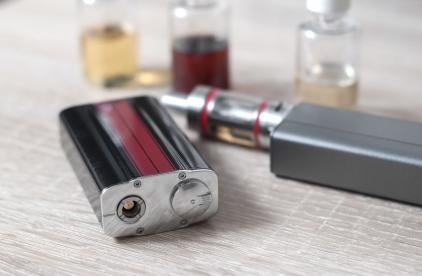On January 8, 2020 FDA published its latest compliance policy guidance, Guidance for Industry: Enforcement Priorities for Electronic Nicotine Delivery Systems (ENDS) and Other Deemed Products on the Market Without Premarket Authorization (January 2020), which goes into effect in February. Pursuant to the final guidance, beginning February 6, 2020, FDA intends to prioritize enforcement of premarket review requirements for the following products:
-
Any flavored, cartridge-based ENDS product (other than a tobacco or menthol-flavored ENDS product);
-
All other ENDS products for which the manufacturer has failed to take (or is failing to take) adequate measures to prevent minors’ access; and
-
Any ENDS product that is targeted to minors or likely to promote use of ENDS by minors.
Importantly, FDA also intends to prioritize enforcement of any ENDS product (on the market as of August 8, 2016[1]) that is offered for sale after May 12, 2020, and for which the manufacturer has not submitted a premarket application (or after a negative action by FDA on a timely submitted application). The May 12, 2020 deadline was initially established by a federal district court in Maryland; that decision is now pending appeal in the Fourth Circuit.
With respect to the flavored cartridge/pod-system ban, the definition of “cartridge-based ENDS” in the guidance is somewhat unique and does not fall squarely within meaning of “open” and “closed” systems in industry parlance:
Cartridge-based ENDS products are a type of ENDS product that consists of, includes, or involves a cartridge or pod that holds liquid that is to be aerosolized through product use. For purposes of this definition, a cartridge or pod is any small, enclosed unit (sealed or unsealed) designed to fit within or operate as part of an electronic nicotine delivery system. [Footnote: An example of products that would not be captured by this definition include completely self-contained, disposable products.]
Manufacturers should note that because a cartridge/pod may be “sealed or unsealed” this definition appears to cover devices that use refillable pods. As discussed below, manufacturers of such devices, particularly small and easily-concealable devices, should not assume that their products are safe from immediate enforcement because they are open-systems or sold without flavored e-liquid.
While FDA has identified non-tobacco and non-menthol flavored cartridge-based ENDS (such as the JUUL) as the primary source of rising underage use, the Agency is also targeting (a) manufacturers of all types of ENDS that are not adequately preventing minor access, and (b) any ENDS products (open or closed systems, including e-liquids sold in vape shops) that, in FDA’s view, are targeted to minors or likely to promote ENDS use by minors. FDA’s broad approach could put a significant portion of the vapor industry at risk of immediate enforcement.
When determining whether an ENDS manufacturer is taking or has taken adequate measures to prevent minors’ access to its products, the Agency will consider, for example:
-
Whether adequate programs to monitor retailer compliance with age-verification and sales restrictions are being implemented;
-
Whether retailers face manufacturer-established penalties for failing to comply with age verification and sales restrictions, and whether there is a policy of notifying FDA of retailer violations;
-
If the manufacturer is also a retailer, whether programs have been implemented to ensure age-verification (g., check ID at the door, adult-only access, etc.);
-
For online sales, whether the manufacturer uses adequate age-verification technology or requires that online retailers use such technology to prevent minor access and underage sales; and
-
Whether a manufacturer limits or requires retailers to limit the quantity of ENDS products that a customer may purchase in a given period of time (e., no bulk purchases).
When determining whether an ENDS product is targeted to minors or is marketed in a manner that is likely to promote ENDS use by minors, the Agency will consider, for example:
-
Whether the labeling and/or advertising of a product resembles kid-friendly foods and drinks or resemble other non-ENDS products that are appealing to youth. Here FDA highlights the numerous warning letters issued to e-liquid manufacturers since 2018. Those warning letters alleged that the e-liquid products were misbranded and misleading because the labeling and/or advertising of the products (e., color schemes, label images, brand names, etc.) inappropriately imitated specific food products that are generally marketed toward and/or appealing to children, including cereals (e.g., Cinnamon Toast Crunch, Lucky Charms, Fruit Loops, Franken Berry), candies and snacks (e.g., Life Savers, Sour Patch Kids, Gummy Worms, War Heads, Pocky Sticks, Goobers, Tree Top Apple Juice), and desserts (e.g., Unicorn Cakes, Nilla Wafers, Reddi Wip).
-
Whether marketing materials utilize youth appealing cartoon or animated characters or use popular children’s characters and titles;
-
Whether paid social media influencers are used; and
-
Whether a product is promoted for being easily concealable (from parents and teachers, for example). In this regard, FDA makes clear in the guidance that the following types of devices and device features present a unique concern for youth, even if adults may prefer these as well:
-
Small size that allows for easy concealability and features that facilitate the ease of use (draw activation, prefilled cartridges or pods, and USB rechargeability);
-
Small size that allow for use in school, quick concealment, product use in a social setting without others’ awareness, and products’ ability to be concealed with other equipment;
-
Products with no settings to change and very little assembly required; and
-
Products with features such as pre-filled cartridges, draw activated batteries, and that can be recharged via a USB port, charging adapters or cell phone.
-
While FDA carved out “self-contained disposable products” from the definition of cartridge-based ENDS as noted above, such products, particularly flavored high-nicotine salt disposables (as opposed to low nicotine cigalikes) could also be targeted by FDA for these reasons.
In short, while FDA’s focus is on flavored cartridge and pod-systems, ENDS companies should be aware that FDA’s guidance is broad enough to capture a wide variety of open and closed-system products that may be viewed by FDA as accessible to youth, marketed to youth or easily used and/or concealed by youth.
Other Deemed Products
With respect to other deemed tobacco products, including cigars and hookah, FDA indicated that available data does not support utilizing limited Agency resources for increased enforcement in advance of the May 12, 2020 premarket application deadline. FDA will make enforcement decisions on a case-by-case basis and intends to prioritize enforcement based on the likelihood of youth use and initiation. Factors the Agency may consider include:
-
What FDA understands about the number of youth currently using the product or category of product;
-
Trends in the numbers of youth use (since 2016);
-
Whether the product contains added flavors;
-
What FDA understands about how the product is typically sold and how likely to impact access and use by minors;
-
What FDA understands about the frequency and other demographics of use by minors.
Based on these factors, given what FDA understands to be their comparatively lower youth usage rates, FDA’s lowest priority among other deemed products include relatively expensive, large hand-rolled cigars that do not have flavors (e.g., fruit, candy, or mint). FDA further states in the guidance that it is actively working towards a proposed rule that would ban the use of characterizing flavors in cigars.
[1] All deemed tobacco products, including ENDS, intended to be introduced to the U.S. market for the first time after August 8, 2016 still require FDA premarket authorization “up front” and do not qualify for the compliance policy.





 i
i


